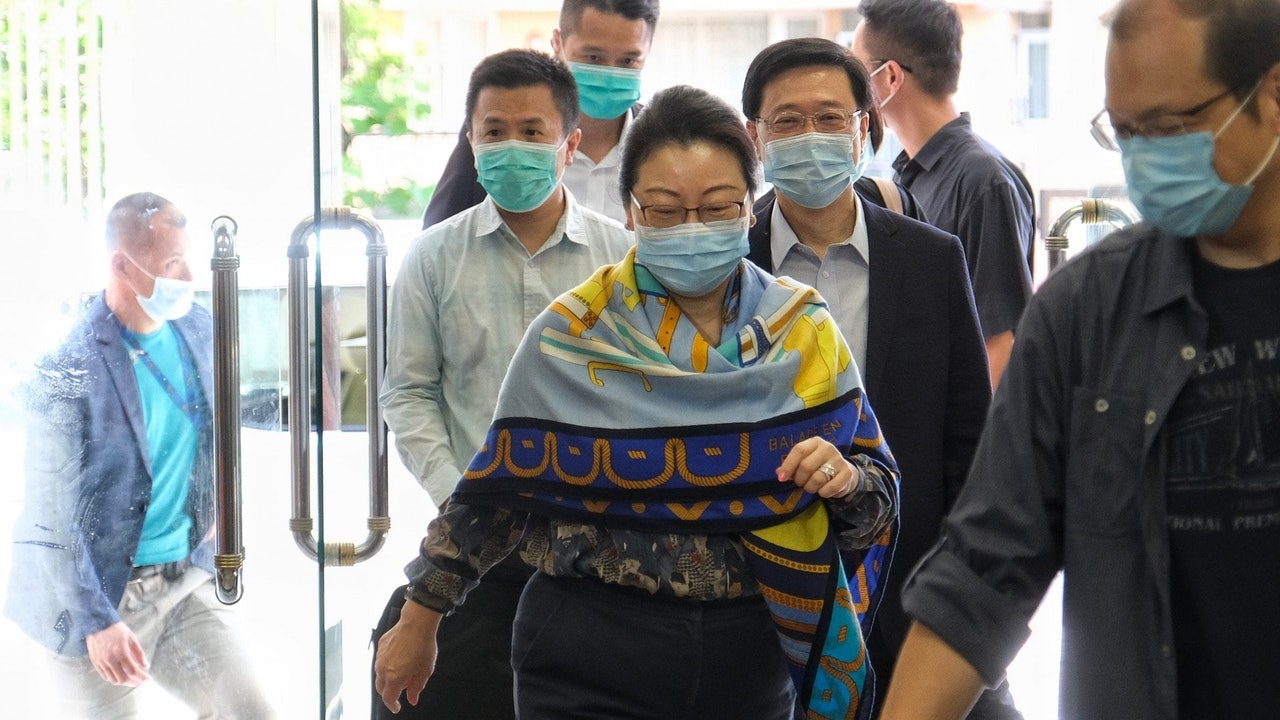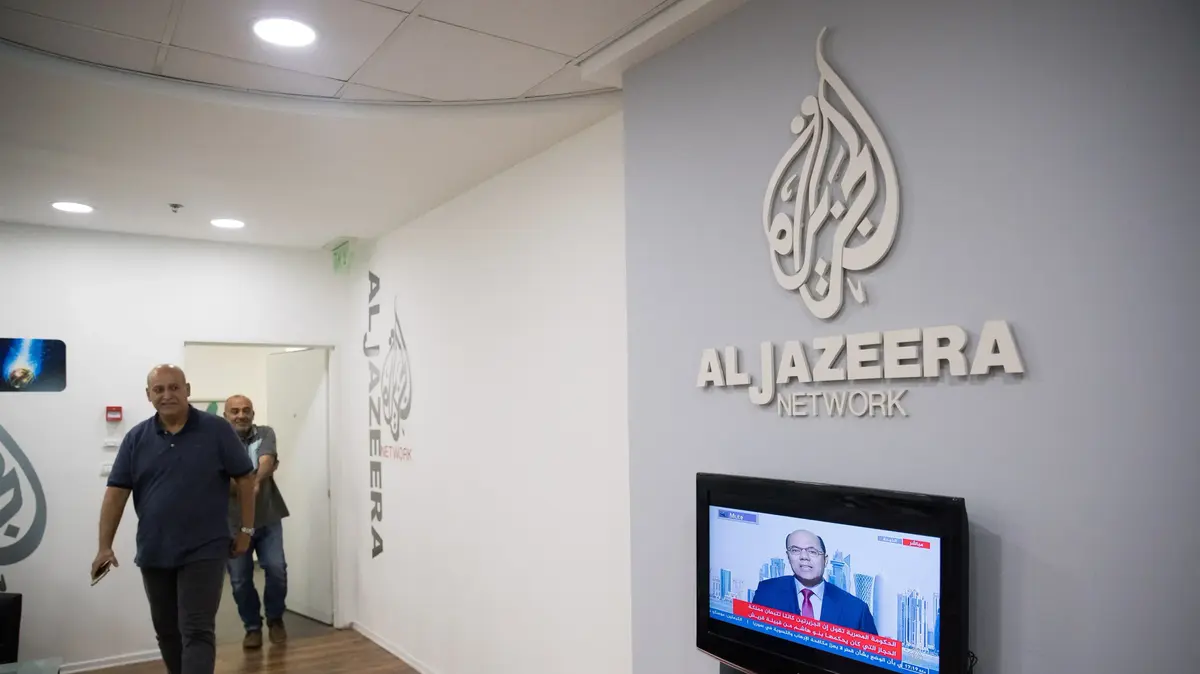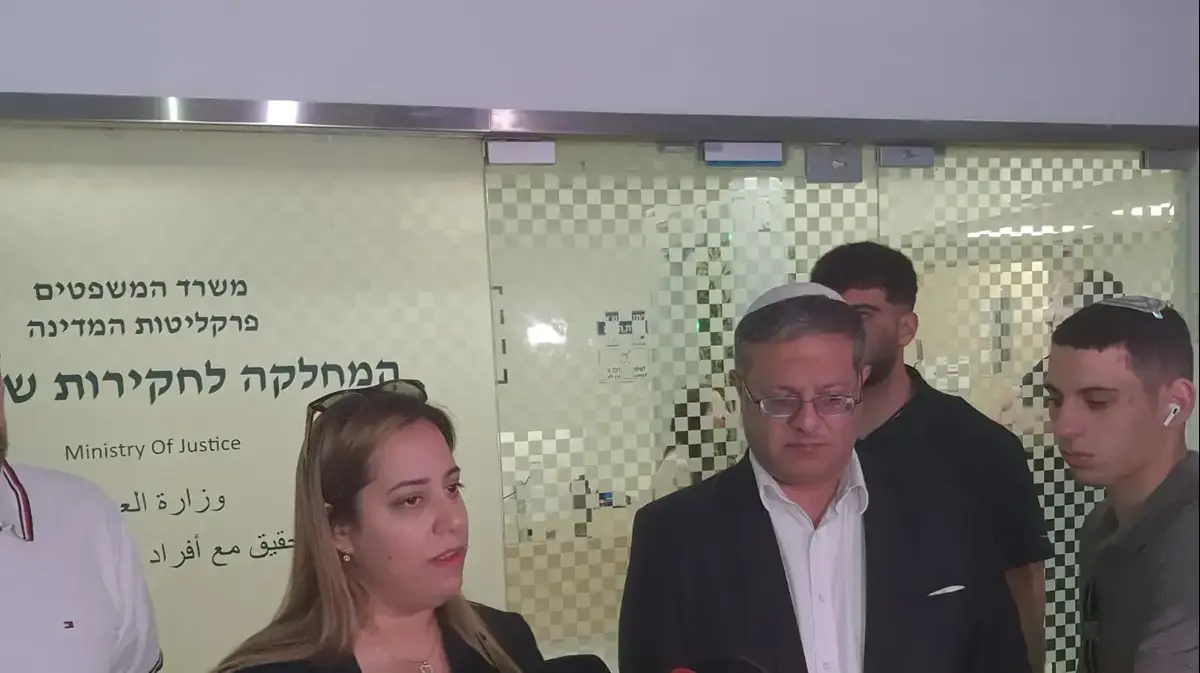Political situation
Written by: Lin Jian
2020-07-05 13:02
Last update date: 2020-07-05 13:03The Minzu District National Security Law came into effect last week. One of the key points of the article is that Article 14 stipulates that the decision made by the National Security Committee is not subject to judicial review. The outside world is concerned about how wide the scope of the National Security Committee’s decision will be and whether it will be difficult to monitor.
When the Secretary for Justice Zheng Ruohua attended the wireless TV program "Speak Clearly and Speak Chu" today (5th), she was asked about the scope of the decision made by the National Security Committee. , Which may include issues such as whether warrants are required for police searches. She pointed out that the decision made by the National Security Council is the central authority, so it is not subject to judicial review and the work is not disclosed.
Zheng Ruohua pointed out that the National Security Council "make many decisions" regarding the implementation of the law. (Profile picture/photo by Luo Junhao)
Article 14 of the National Security Law states that the work of the National Security Committee "is not subject to interference by any other agencies, organizations and individuals in the Hong Kong Special Administrative Region, and work information is not disclosed", and its decision is "not subject to judicial review." Zheng Ruohua was asked by the host, in the end, the decision made by the National Security Committee can be extended to specific places. Zheng Ruohua pointed out that since the National Security Committee’s authority is to decide policies on national security matters, national security is the country’s top priority, and density preservation is very important, and it is also the central authority. Therefore, it is not disclosed and is not subject to judicial review.
As for whether the decision of the National Security Council contains the details of the enforcement of the National Security Law, such as whether the search office needs a warrant or not, Zheng Ruohua did not deny that the committee "will make many decisions regarding the implementation of the (National Security Law)."
However, if the police can search the premises without a court warrant, and the chief executive has the power to decide to intercept the communication, is there a chance to involve an unreasonable violation of personal rights? Zheng Ruohua pointed out that in many other countries, the interception is decided by the administrative agency. As for the application of warrants to the court, some serious cases such as explosives will be dealt with by the police immediately according to certain procedures. She reiterated that national security is a top priority and will try to refer to appropriate practices while preventing acts that endanger national security.
The National Security Law came into effect last week. (Profile picture)
The Hong Kong version of the National Security Law │Zhang Jianzong said that civil servants should cooperate with the SAR Government to fulfill its responsibility to maintain national security
[Hong Kong version of National Security Law] Japanese media: Beijing will send more than 200 armed police permanently stationed in Hong Kong
National Security Law|Hu Zhiwei: The Philosophy Does Not Enter the Language
Citizens arrested in possession of Hong Kong independence slogans Zheng Ruohua: Not necessarily prosecuted
As for someone who was arrested for having found a slogan in Hong Kong recently, Zheng Ruohua pointed out that the police can only make an arrest if they have reasonable suspicion. The defendant was convicted under reasonable doubt. She pointed out that there is no need to worry about breaking the law because of a single "trivial matter", and even if the police have doubts, they will investigate again and eventually may not prosecute.
The government issued a statement on Thursday, stating that the slogan "Recover Hong Kong, Revolution of the Times" has the meaning of Hong Kong independence and subversion of state power. Asked whether it is easy to be perceived as exerting pressure on the court, Zheng Ruohua denied, referring to the court's judgment on whether a person commits a crime of secession, based on the overall situation, such as whether there is a criminal intention. She also pointed out that the government expressed its position on the relevant slogan in order to avoid anyone trying the law again.
In the district board elections last year, some candidates had said the slogan "Guangshi", but they finally entered the gate. Zheng Ruohua denied that it was a "moving dragon", referring to the election officer to judge whether the candidates met the qualifications for election, and had an independent one. This practice is not directly related to the national security laws of the port area.
The law also stipulates that the police can confiscate documents and restrict the suspects from leaving the country, which is different from the current decision by the judge. Zheng Ruohua pointed out that he understands that the outside world is worried about the lack of checks and balances, and will study the conditions for the exercise of relevant powers.
Regarding the rule that the Secretary of Justice may instruct the case not to have a jury, Zheng Ruohua pointed out that this should be done when it obstructs the justice of the judicial process, such as involving state secrets, national defense information, national interests and security. As for the involvement of the National Security Office in Hong Kong, she emphasized that it rarely happens, but if the case is handled by the Public Security Office, it will be based on the mainland legal procedures.
Hong Kong version of the National Security Law Zheng Ruohua Police Department Deng Bingqiang






/cloudfront-eu-central-1.images.arcpublishing.com/prisa/6WXBDHP36LUSCU24WPM6SPSFEE.jpg)





/cloudfront-eu-central-1.images.arcpublishing.com/prisa/KMEYMJKESBAZBE4MRBAM4TGHIQ.jpg)


